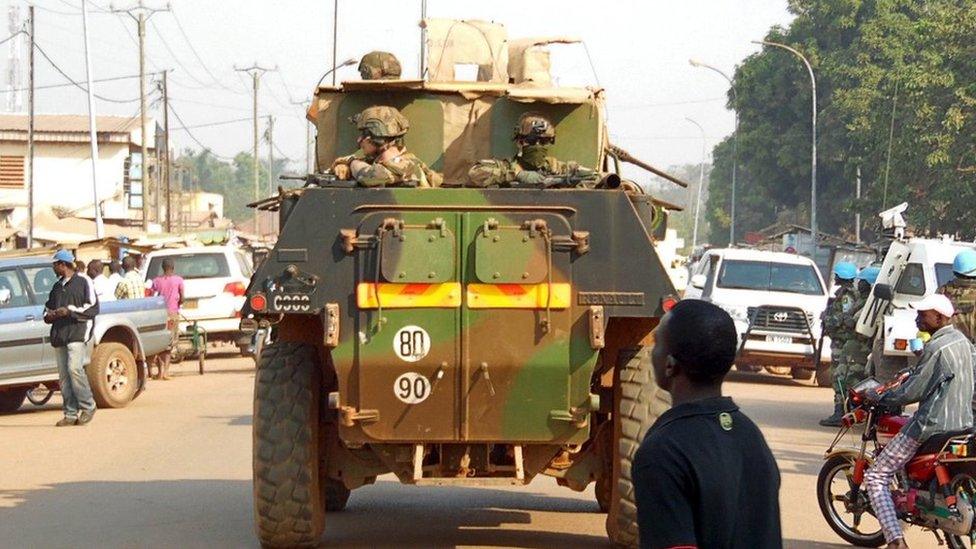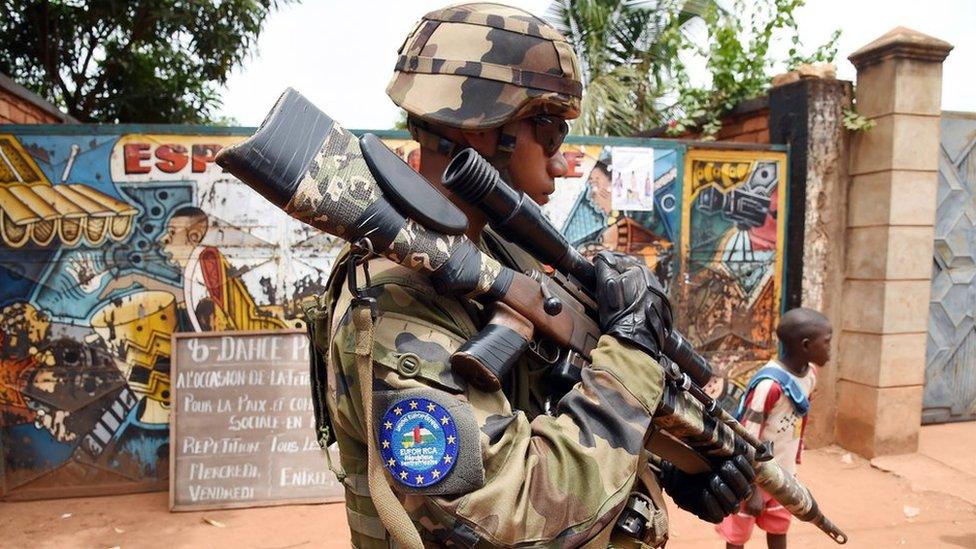UN sex abuse scandal: Rise in allegations against peacekeepers
- Published

Most of the allegations came against UN peacekeepers in Central African Republic (CAR)
Allegations of sexual exploitation or sexual abuse by United Nations peacekeepers rose by a third last year, according to a UN report.
There were 69 claims against peacekeepers in 2015, up from 52 in 2014 was 66 in 2013.
Almost a third of the 2015 claims were made in the Central African Republic.
For the first time, the report has also set out all the countries whose soldiers are reportedly involved under a new "name-and-shame" policy.
Overall, 10 peacekeeping missions were subject to allegations in 2015.
The allegations involve military personnel, international police, other staff and volunteers.
According to the UN's latest figures, external, there are 124,746 personnel serving in 16 peacekeeping missions worldwide.
It has been criticised for failing to act quickly on sexual abuse allegations made against peacekeepers.
Last December an independent panel, external calling the UN response to allegations in the Central African Republic (CAR) "seriously flawed" and a "gross institutional failure".
It accused senior UN officials of abusing their authority by failing to take action over allegations of abuse by soldiers from France, Equatorial Guinea and Chad.
'Court-martial'
UN Secretary-General Ban Ki-Moon's report called for an international convention on "crimes committed in peacekeeping operations".
He also urged countries to change their laws so that they apply to sex crimes committed by citizens serving in UN peace operations.
Mr Ban also called for "on-site court martial proceedings" for some crimes and a DNA database of all peacekeepers.
UN peacekeepers operate under the legal jurisdiction of their home countries, making prosecution more difficult.
In February, the UN said it would send home more than 100 peacekeepers from CAR following sexual abuse allegations.
A 10,000-strong UN force took over a peacekeeping mission in the country in September 2014.
After CAR, the second highest number of allegations was at the UN peacekeeping mission in Congo, with 16 cases, followed by Haiti with nine.
- Published4 February 2016

- Published29 January 2016
